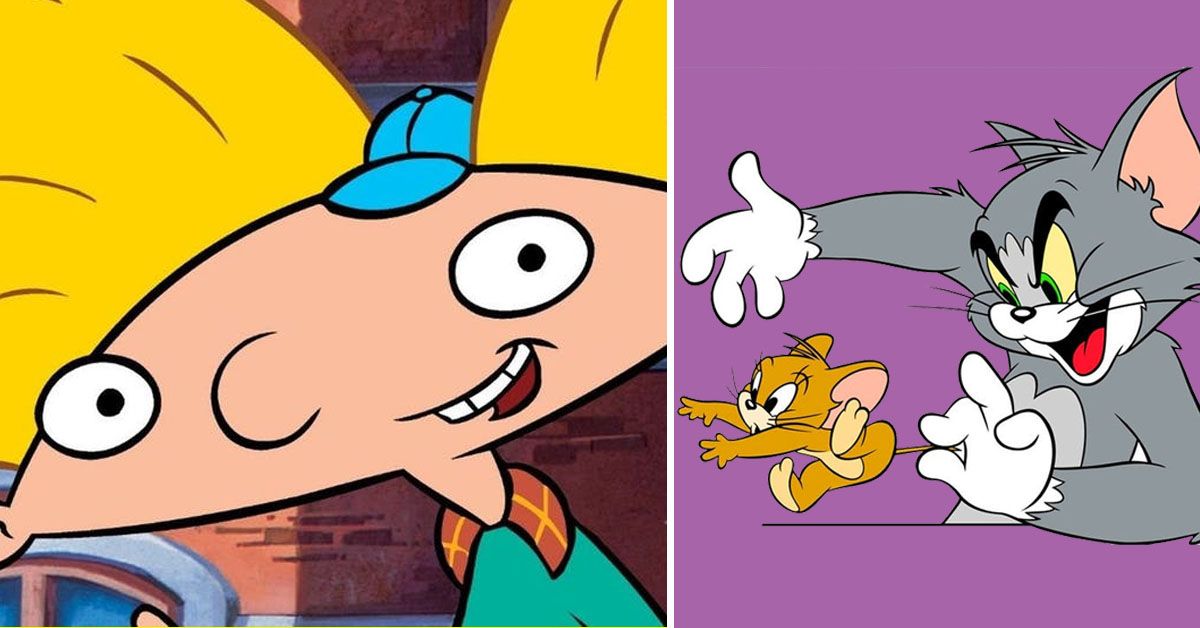

- SLAPDASH KID CARTOON FULL
- SLAPDASH KID CARTOON ANDROID
- SLAPDASH KID CARTOON SERIES
- SLAPDASH KID CARTOON ZIP
The closest Goulart came to a major work, the book in which he stretched himself the most, is After Things Fell Apart, which was published as an Ace Special in 1970, with (of course) a great Leo and Diane Dillon cover. Like all the best funnymen, Goulart’s most memorable jokes had a point to them, one that’s sharper now than when he first wrote them.
SLAPDASH KID CARTOON ANDROID
In “Hardcastle” a man finds himself cuckolded by his automated house in “Into the Shop” a supposedly error-proof robot “lawmobile” proves as susceptible to mistakes as any human, as it arrests, tries, and summarily executes the notorious criminal Sheldon Kloog - three different times, and at the end of the story the deranged vehicle has identified the sheriff himself as the outlaw in “Monte Christo Complex” a man is driven crazy by cascading bureaucratic errors (a golf instructor by trade, Alfred Mesklin is reassigned as “shop steward in a soy bean plant in Pasadena.” After that he is transported to Mars to be a chimney sweep while his wife is shipped off to “a women’s prison farm near Oxnard.”) On his return to Earth Mesklin goes on an android dismantling rampage, and at the end of the story he is carted away, shrieking, “Two years on the wilds of Mars in cramped chimneys and worse! My wife shucking corn in the pokey!” There is, of course no implication that Mesklin’s cry for justice will fix anything just the opposite.įifty years on, these stories are still pretty funny… or maybe not funny at all, depending on how much of the past week you’ve spent being asked by robots to prove you’re not a robot, or getting a numb butt sitting on hold after you’ve finally successfully negotiated a contradictory automated phone menu in a vain attempt to talk to an actual human being… only to be disconnected after waiting two hours.

It includes ten progress-skeptical tales in which official promises are worth somewhat less than the paper they’re written on and technology proves to be a decidedly two-edged sword. Six collections of his science fiction yarns were published during his life, and What’s Become of Screwloose? And Other Inquiries (DAW 1971) is as good a book to start with as any of them. You can get a good idea of Goulart’s method by dipping into his short stories.
SLAPDASH KID CARTOON ZIP
Season lightly - or not so lightly, really - with technology run amok, and you have a 160-page novel (or about fifty of them) that you can zip through with a good amount of enjoyment.
SLAPDASH KID CARTOON FULL
These too were potboilers of a sort, but Goulart was clearly enjoying himself when he wrote them, and they are full of wacky, fizzy slapstick invention, often featuring inept, comically corrupt bureaucracies and complication-producing identity mix-ups, with classically farcical consequences. He was also William Shatner’s ghostwriter on the actor’s TekWarbooks what would you give to have been a fly on the wall during their story conferences? “What do you think of this idea, Ron?” “It’s dead, Bill.”Īt the same time he was doing all this, though, Goulart was also cranking out novels and stories set in his own original venues with his own original characters, chief among them books featuring the shapeshifting galactic peacekeepers of the Chameleon Corps many of these tales were set in the chaotic Barnum System, which also hosted many non-Chameleon Corps stories.Ī lot of Goulart’s books were published by DAW it sometimes seemed as if that publisher put out a new Goulart every three or four weeks. These productions are about what you would expect - professional, work-for-hire potboilers written at high speed for the sole purpose of keeping the refrigerator stocked and the gas and electricity on.


SLAPDASH KID CARTOON SERIES
Ron Goulart, who died on January 14 th, a day after his eighty-ninth birthday, was an insanely prolific science fiction and mystery writer, especially in the 70’s and 80’s, when he wrote over one hundred novels, many of them pseudonymous entries in various “copyrighted character” series such as The Avenger, Flash Gordon, Vampirella, and The Phantom. Lafferty, Frederic Brown, Robert Sheckley… and Ron Goulart. The humorous mode has a long and honorable history, exemplified by writers like Stanislaw Lem, Harry Harrison, R.A. Contrary to popular opinion, comic science fiction didn’t start and end with Douglas Adams and The Hitchhiker’s Guide to the Galaxy.


 0 kommentar(er)
0 kommentar(er)
